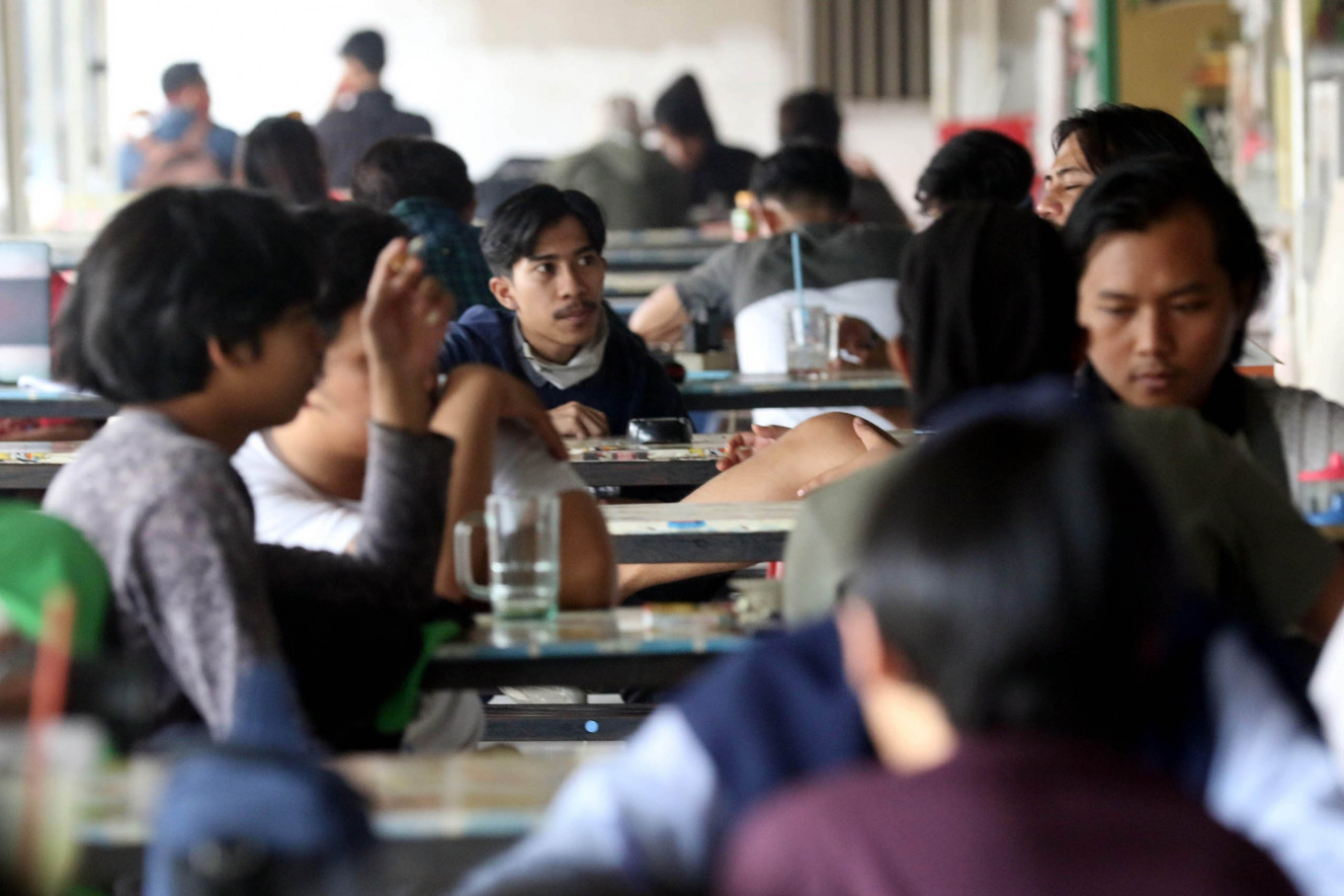Govt contact-tracing efforts failing
Despite ‘mudik’ ban, increased mobility likely to spread coronavirus variants
Change Size

T
he government is as yet unable to determine whether local cases of the Indian and South African coronavirus variants were imported or were somehow transmitted locally, once again displaying the country's persistently poor contact-tracing and containment efforts, over a year into the outbreak.
Health Minister Budi Gunadi Sadikin announced on Monday that authorities had detected two cases of the Indian variant B1617, a single case of the South African variant B1351 and three new cases of the United Kingdom variant B117, bringing Indonesia’s total caseload of UK variants to 13.
The South African and UK variants are both categorized as variants of concern by the World Health Organization as appearing “to spread more easily between people”. Meanwhile, the Indian variant remains a variant of interest amid ongoing studies to determine its characteristics.
Ministerial spokesperson Siti Nadia Tarmizi revealed at a press briefing on Tuesday that one of the two Indian variant cases was a health worker who had exposure to foreign patients, and that authorities were still tracing up to 25 close contacts in the case.
"We still don't know whether the case was locally transmitted or imported because we're still tracing her close contacts, which are [many]. Some of the contacts are foreigners," Nadia said.
Read also: As Indonesia detects India and South Africa variants, fears grow over possible case spikes
This case was discovered in a family cluster in early April, she continued, as the worker's husband and her child had also caught the virus, although it was not disclosed with what variant. All three were in good condition and only required self-isolation, attributing the health worker’s mild symptoms to the fact that she had been vaccinated against COVID-19.
The second B1617 case, believed to be imported, was detected in a passenger who arrived from India in late April before the government banned entry to travelers from that country on April 25. The individual is in stable condition at Sulianti Saroso Infectious Diseases Hospital in Jakarta.
For now, this is the sole case detected among the 56 passengers who arrived from India last month. The remaining samples are still being vetted through whole-genome sequencing, an advanced laboratory procedure used to detect viral mutations.
Read also: 'Human catastrophe' as India's COVID-19 surge spreads to Nepal
The ministry is just as uncertain about whether the one case of the South African variant was imported or locally transmitted. Nadia said the variant was detected in a tourism worker in Bali who had been exposed to foreigners. The patient received intensive care treatment in January, but had died of the disease.
The ministry has previously confirmed that some cases of the UK variant originated via local transmission.
"It's extremely late [for contact tracing]," said Masdalina Pane of the Indonesian Epidemiologists Association (PAEI) who was involved in scaling up the government's contact-tracing efforts in hard-hit areas from November last year to March this year.
Regardless of the variants, robust contact tracing has been deemed the key to containing the COVID-19 outbreak. The problem with these new variants is that they have been associated with higher transmissibility rates.
‘Mudik’ may complicate containment efforts
Fears have now grown that the absence or easing of mobility restrictions and noncompliance with the health protocols ahead of Idul Fitri, with droves of people potentially returning to their hometowns despite the government's mudik (exodus) ban, could further spread the new COVID-19 variants and lead to a new surge in infections.
The government is set to ban mudik starting from Thursday until May 17, but media reports have found a spike in mobility just before the prohibition takes effect. Antara reported that in Soekarno-Hatta International Airport in Tangerang, Banten, passengers were expected to number 86,000 on Wednesday, a 15 percent increase from the previous day. But Soekarno-Hatta airport spokesperson told The Jakarta Post that the number of passengers was still within the normal daily range of between 40,000 and 60,000 passengers.
Read also: Policy inconsistencies muddy ‘mudik’ measures
Kompas TV also reported a significant increase in the use of the Cikopo-Palimanan (Cipali) toll road between Jakarta and Cirebon, West Java, in the early hours of Wednesday.
Increased mobility and cases might complicate containment efforts because close contacts of a confirmed case should ideally be identified within two days and they must be quarantined within three days, Masdalina said.
But the situation in Indonesia is far from ideal, as Minister Budi acknowledged himself early in his appointment. In January, he said that contacts traced only ranged between two and four people as opposed to the ideal number of 30 people, and it could take more than a week due to the manual process.
The Health Ministry's head of community health centers (Puskesmas) sub-directorate, Monica Saraswati Sitepu, said recently that Indonesia would need 80,000 contact tracers to meet the target set by the WHO of 30 tracers per 100,000 people.
Read also: Indonesia's 5-day quarantine rule too risky amid case resurgence, new variant: Experts
The government has deployed over 5,000 contact tracers to help Puskesmas in the 10 hardest-hit provinces, and since April has also relied on military, police and public order (Satpol PP) personnel for the tracing efforts. But Masdalina expressed doubts about this because the added personnel had a different line of command from Puskesmas.
Genome sequencing remains a luxury
Experts have repeatedly voiced their concerns about the country's insufficient whole-genome sequencing to detect any new variants. The South African variant, for instance, was only reported this month despite the patient having been treated since January.
Nadia conceded that detecting the new variants would take time, as only 17 of 800 labs designated for COVID-19 testing in the country had the capacity to run whole-genome sequencing. Reading into the results could also be a time-consuming, detailed process, she said









